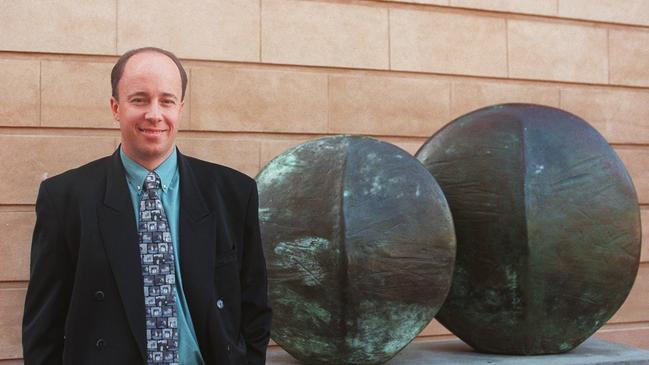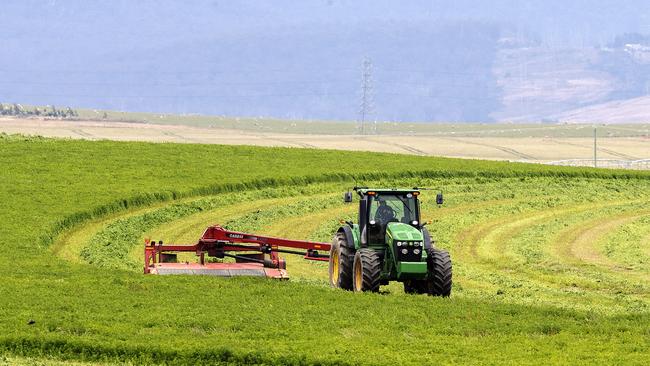Lucerne, seed industries say truth in labelling crucial to sector in wake of Cadzow trial
The sentencing of a well-known South East grain exporter for manufacturing fake labels this week has highlighted the need for traceability along the agricultural supply chain, according to industry reps.

SA Business
Don't miss out on the headlines from SA Business. Followed categories will be added to My News.
- Grain trader jailed for more than four years
- Prizes, discounts, freebies: Check out the latest subscriber rewards
The lucerne and seed industry says truth in labelling is crucial to ensure customers are guaranteed a fully traceable product following a South-East grain producer, who manufactured his own fake labels for bags of seeds that he sold to Saudi Arabia, being jailed for more than four years this week.
From July 2012 to January 2016, Tim Cadzow, 52, sold lucerne seed grown by farmers in around Keith in the South-East using fake labels.
Mr Cadzow exported around 600 tonnes of seeds with an approximate value of $5.7 million.
Lucerne Australia chairman Joshua Rasheed said for his organisation, the integrity of the lucerne seed industry was paramount.
“Our industry is worth about $95 million a year and we are encouraged that the court’s decision upholds the reputation of our production system and provides reassurance for our growers and end users,” he said.

“Lucerne Australia supports the rules and procedures in place to ensure the product we deliver to our customers is fully traceable and continues to be of high quality.”
Australian Seed Federation general manager Osman Mewett said with the Australian lucerne seed industry valued at close to $100 million a year, and with about 74 per cent of seed produced exported, market assurance was crucial.
“The export market is predicated on the integrity of the OECD (Organisation for Economic Co-operation and Development) seed certification system,” he said.
“Attempts to circumvent the official certification system puts this entire export market at risk.
“It is imperative to protect the integrity and rigour of the OECD seed certification scheme as this provides certainty to both industry and customers regarding the quality of the seed being traded and that “what’s on the tag is in the bag”.
MORE NEWS
Push for new look at Granite Island causeway plan
Clare Valley needs you to come back
“This case sends a strong message to the seed industry about the consequences of attempting to bypass the rigour of OECD certification.”
Mr Mewett said the Australian Seed Authority has considerably tightened its security around the use of OECD Certification Labels since this activity was uncovered. “We are not aware of any other instances of this type of misuse of OECD seed certification labels occurring,” he said.
